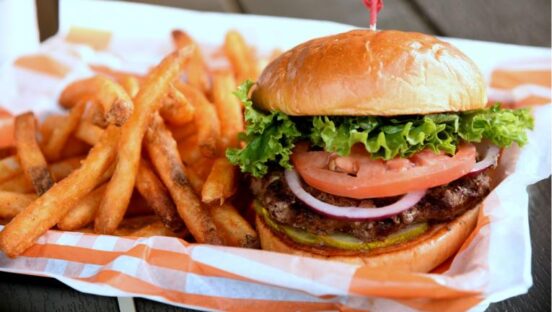Back Yard Burgers declared its second bankruptcy in late June, citing significant operational hurdles and piling debt from the COVID pandemic.
“During the pandemic, any chance of dealing with operational issues in the normal course was unprecedented and disruptive to the company’s guests and employees. Operational control and management effectiveness was disrupted and exposed the company to weaknesses that were not previously identifiable, and the consequences impacted the financial stability and the potential for financial recovery – which ultimately necessitated the filing of these Chapter 11 Cases,” CEO Mark Cote said in a court filing.
The company has remedied some of these issues by closing stores, cutting costs, installing new leadership, and negotiating with vendors, but the brand hasn’t been able to address its debt. Back Yard Burgers owes $10.9 million on a loan from Guaranty Bank & Trust Company. The funding came from the Main Street Lending Program, which was created by the Federal Reserve to provide dollars to small and medium businesses impacted by COVID. The concept also owes about $185,400 under a credit card facility and about $2 million on equipment loans.
The bankruptcy proceedings are meant to prevent any cash drain that would hamper ongoing operations.
The chain has 19 restaurants—five company stores in Mississippi and Tennessee and 14 franchised locations in Tennessee, North Carolina, Florida, Missouri, Kentucky, Arkansas, Illinois, and Mississippi.
It’s a far cry from where the 36-year-old Back Yard Burgers used to be—an early adopter of the fast-casual, better-burger movement, before the rise of Five Guys and Shake Shack. In 1997 the chain started converting restaurants from a drive-thru-only format to include dine-in spaces to plant an early flag in the budding segment. Although a decade later, its operations were more closely aligned with fast-food peers. In more recent times, the chain has tried to wedge itself in the middle, serving as a better burger at a quick-service price.
Back Yard Burgers had nearly 200 restaurants in the late 2000s as a publicly traded company. In 2007 the company went private when Atlanta-based private equity firm BBAC LLC acquired it for about $38 million in cash.
The brand’s first bankruptcy came in October 2012 after closing dozens of restaurants, assault allegations toward the C-suite, and removal of fan-favorite items like seasoned fries. By 2014, Back Yard Burgers was down to 68 restaurants. Three years later, then at 55 stores, the brand was sold to Axum Capital Partners, a private equity firm based in Charlotte, North Carolina.
Axum also owns 24-unit sports bar Wild Wing Cafe, which declared bankruptcy earlier this month for similar reasons—COVID pressures and inability to restructure payment of a $12.5 million loan. Cote is the CEO of both Back Yard Burgers and Wild Wing Cafe. One of Axum’s managing directors is Mushin Muhammad, a former NFL player with the Carolina Panthers. Another is Edna Morris, who previously served as president of Red Lobster when it was owned by Darden Restaurants.
The burger chain announced expansion and remodeling plans in early 2022, including a refresh of its first-ever location in Cleveland, Mississippi. The brand at the time that upcoming openings would feature “new design and technology elements that improve the overall guest experience and employee operations.” Some examples—an updated interior design featuring pergolas that bring the outdoors in; a modern exterior with a mix of brick, wood, and metal; contactless ordering for dine-in guests; and indoor seating for up to 60 guests, with some locations offering outdoor seating.







